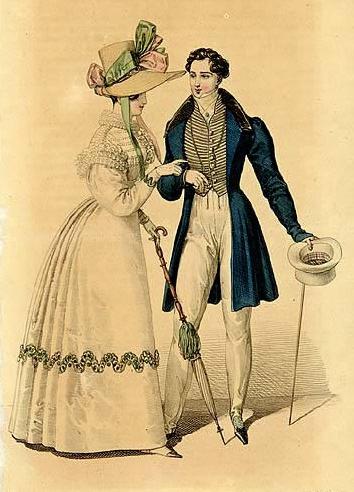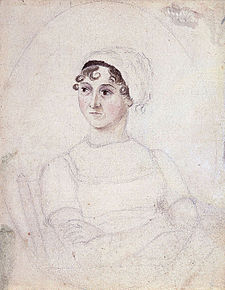
By Dolores
In the late 18th century, Mary Wollstonecraft wrote A Vindication Of The Rights Of Woman,” stating: “men complain, and with reason, of the follies and caprices of our sex, when they do not keenly satirize our headstrong passions and grove long vices. –Behold, I should answer, the natural effect of ignorance!” (Wollstonecraft, 496) In Wollstonecraft’s view, women’s follies and caprices that men considered are the results of the ignorance of women by the society. At the same time, the lack of opportunities and rights, the suppressed emotions and disowned qualities of women are significant social problems. Austen happened to coincide with Wollstonecraft on this as human being, women should have the same right as men, so that Austen endowed Emma Woodhouse the sound judgment in order to create a female figure with interesting self-awarenss.
As the plot unfolds, Emma used to express her opinion and interferes others, such as Harriet marriage. She talkes about unmarried female, “I shall not be a poor old maid; and it is poverty only which makes celibacy contemptible to a generous public! A single woman, with a very narrow income, must be a ridiculous, disagreeable old maid! — the proper sport of boys and girls — but a single woman, of good fortune, is always respectable, and maybe as sensible as pleasant as any body else.” (Austen, 269) The quote shows Emma’s pride. As a rich maid, she uses Miss Bates as an example of a woman who “with a very narrow income” and compares with herself, a rich maid, to persuade that a single woman with fortune is respectable. Emma knows the function of money very well, in her view, economic independence is the essential of personal independence. Once women have fortune, they become a single solid individual, they can freely choose to put their efforts into music, painting, instead of household affairs. Different from other female’s attention to marriage in the book, Emma only cares about friends’ marriages, which also indicates that for Emma, it is not necessary to fill her life with marriage, she has her own plan for her life.
In the novel, besides “handsome”, “clever”, “rich”, Emma is created as an insular, self-centered, and narrow figure. As Austen said of Emma, “I’m going to take a heroine whom no one but myself will much like.” In Emma’s declaration of “not marry”, she said she has “a great many independent resources”, and “all the children of a sister I love so much, to care about”, which may also be the declaration of unmarried Austen herself. The self-awareness of Emma is strong, perhaps that’s the reason why Austen loves the figure so much.

Works Cited
- Wollstonecraft, Mary. “A Vindication Of The Rights Of Woman.” The Norton Anthology of Theory And Criticism. Ed. Cain, Leitch, Finke, Johnson, Mcgowan, Sharpley-Whiting, Williams. New York: W.W. Norton&Company, 2010. 496-504. Print.
- Austen, Jane and Flieger Samuelian, Kristin. Emma. Toronto: broadview, 2004. Print.
http://en.wikipedia.orgwikiJane_Austen

Well written! I agree with you! This topic of feminism with Austen is constantly a debate in literature. Typically, I consider Elizabeth Bennet and Emma Woodhouse (though I know there are other fair candidates to the title) Austen’s most feminist heroines. Elizabeth who rejects Mr. Collins and Mr. Darcy, Emma who stubbornly and somewhat admirably appears quite determined to make do on her own (as we discussed in class, Emma tries to make things happen). It is problematic at the same time though, no? Elizabeth ultimately concludes the tale in somewhat the same expected manner as every other Regency woman, she gets married, and thus in a manner, her rebellion against society is somewhat undermined by the fact she ultimately loses her agency. Emma similarly, marries Mr. Knightley, and essentially, whatever it is she tries to ‘make happen’ fails. I do agree with you completely that there is quite a feminist approach to this novel! I think what makes this topic so intriguing though, is the fact that there are so many perspectives to look at it through, each with their own merit.
LikeLiked by 1 person